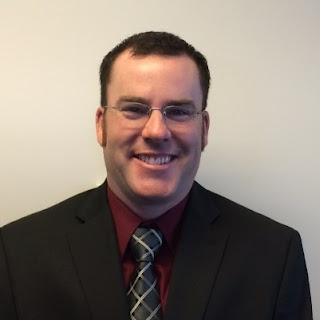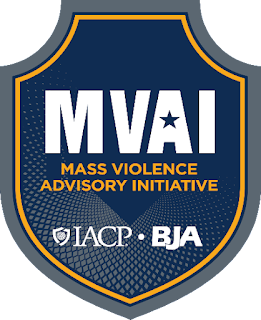Police fatigue has always been a leading concern within the profession, as it has been in related shift-work occupations like emergency medical technicians, paramedics, nursing, and the military.
Typically, fatigue is caused by staying awake too long or lacking quality sleep over time. When fatigued, workers experience mental or physical exhaustion, which leads to the inability to function and perform normal tasks. Acute fatigue — or fatigue that is linked to a lack of adequate sleep — can easily be managed with rest and relaxation. Chronic fatigue, on the other hand, is fatigue that is described as severe and constant tiredness, which is harder to manage.
OSHA generally recommends that managers limit extended shifts and limit the number of days that employees work as a means to manage fatigue. High-stress work environments, such as policing, will also increase the likelihood of workplace fatigue as police officers are exposed to challenging conditions, traumatic circumstances, and shift work. Supervisors need to promote workplace wellness by re-establishing energy through promoting exercise, stress management, proper eating habits, and sleep — the foundational component of health and wellness.
Recently I attended a free webinar hosted by the Justice Clearinghouse and presented by Dr. Lois James. Dr. James is an assistant professor in the Washington State University (WSU) College of Nursing and the Sleep and Performance Research Center. She has been internationally recognized for her work and research focused on bias, stress, sleep, and performance in “high stress” occupations, including law enforcement.
I found the sleep deprivation presentation extremely interesting and engaging, as it covered the consequences and impacts of sleep deprivation on the day-to-day work that police officers do regularly, including:
- Reduced perspective, understanding, and ability to self-monitor.
- Impaired decision-making due to narrowed perception — particularly during stressful situations.
- Worsened mood and greater likelihood for anxiety, irritability, fearfulness, or hostility.
- As a causal factor for officer-involved vehicle collisions in fairly optimal driving conditions and even simulations.
- Greater likelihood to demonstrate implicit bias, use force, and fire their service weapon.
- Less likelihood to utilize de-escalation techniques.
- Long-term and cumulative effects which manifests as physical conditions, chronic illnesses, sleep disorders, and psychological conditions such as depression, PTSD, suicidal ideation, suicide, and family dysfunction.
The presentation included a rundown of the strategies to employ to prevent and counter the effects of sleep deprivation and fatigue in policing, including:
- Recognizing that there is a benefit to nutrition, fitness, and stress management measures for holistic health and wellness if it is backed by good quality sleep.
- Understanding the science of sleep and how concepts like its phases and circadian rhythm can be maximized to significantly impact the quality of sleep.
- Practicing sleep hygiene that ensures one gets the best quality of sleep by creating the ideal sleep routine, environment, and headspace.
- Getting screened for sleep disorders and identifying tools and methods that can be used against these disorders.
- Learning the art of napping — taking into account the length of the nap and the time of the day to best take it.
- Monitoring one’s own fatigue and sleep levels and trends.
- Implementing smart shift scheduling that considers the science of sleep concepts, shift length, and providing enough time to rest in between shifts.
Various studies — including
The Shift Length Experiment conducted by the National Police Foundation — have found trends in sleep quantity and quality related to shift length, particularly when comparing the 8-, 10- and 12-hour shift lengths and working overtime. The number of hours per shift and the risk of injury have a direct relationship, as the potential for on-the-job injuries increase as the shift length increases. This study found that officers are more likely to have increased safety and wellness associated with increased sleep while maximizing alertness on the job.
Dr. James studied how sleep disruption due to shift work leads to operational performance issues, such as difficult decision-making, a narrowing of the understanding and reaction of what is going on around us, the effect on alertness and motor skills, an increase in anxiety, fearfulness, irritability and hostility (which can lead to conflict at home and in the workplace), and finally an increased risk for serious health issues, ranging from certain cancers to cardiovascular disease, obesity, sleep disorders, and mental health concerns.
Police fatigue is a serious concern in public safety, and most police agencies do not take the appropriate steps to reduce the impact of fatigue, which include both the physical and mental health conditions that can result from a lack of sleep. All officers and their agencies need to take steps to recognize and address it. The League of Minnesota Cities Insurance Trust has also developed a PTSD and Mental Health Toolkit to help our members address issues of public safety mental health and post-traumatic stress disorder (PTSD).
I also encourage you to browse the upcoming free webinars at the Justice Clearinghouse, which offers a unique peer-to-peer educational environment that addresses the many challenges affecting our justice and public safety professions.
If you have any questions or comments, you may contact me at tstille@lmc.org or (651) 215-4051.
Remember: Responder Safety = Public Safety
In the meantime, stay safe and be careful -
Tracy



















